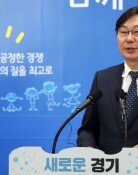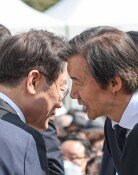N. Korea should take bold measures toward denuclearization
N. Korea should take bold measures toward denuclearization
Posted March. 02, 2019 07:35,
Updated March. 02, 2019 07:35
North Korea’s Foreign Minister Ri Yong Ho held an unexpected midnight news conference Friday and argued that North Korea asked for only partial U.S. sanctions relief unlike U.S. President Donald Trump’s account of the summit collapse that North Korea demanded removal of all sanctions. According to Ri, North Korea had asked for lifting five sanctions under United Nations Security Council (UNSC) resolutions adopted in 2016 and 2017 that hamper the civilian economy and the livelihood of North Koreans. Ri said the U.S. persistently demanded North Korea to take one more measure in addition to scrapping of Yongbyon.
It is hard to accept Pyongyang's argument that the summit collapsed because of Washington's excessive demand. North Korea’s demand of partial sanctions relief is practically no different from all sanctions relief. The UNSC resolutions, which were adopted in 2016 in response to the North's nuclear and long range missile tests, ban North Korean exports of natural resources, cut off foreign exchange inflow to North Korea, and capping crude and refined oil exports to North Korea. The North is asking for partial sanctions relief on the pretext of improving civil economy and the livelihood of its people, but almost all sanctions practically apply to the five articles it wants to be lifted. By lifting those sanctions, the international community’s denuclearization drive could lose traction and the inflow of cash to North Korea can be used to develop nuclear weapons.
Furthermore, what North Korea proposed in exchange for sanctions relief was only scrapping of its facilities. Keeping the existing nuclear warheads and not producing new ones can hardly be called denuclearization but nuclear freeze. North Korea also refused to take measures against its secret nuclear facilities, an additional measure demanded by President Trump on top of scrapping Yongbyon facilities. This is why North Korean leader Kim Jong Un’s willingness to denuclearize is being questioned. Before leaving Hanoi after the collapse of the summit, President Trump said he did not want to lift sanctions unless there is a “real program” toward complete denuclearization and stressed that North Korea was not ready (for real denuclearization). It seems President Trump turned down a “bad deal” that would juice the North Korean regime in exchange for a mere nuclear freeze that includes explosion of Yongbyon reactor that already fell into disuse.
Despite the breakdown of the summit, it is fortunate that both sides are hoping to have additional negotiations, refraining from bashing each other. But Ri Yong Ho said in a press conference that their proposals will never change even if the United States proposes negotiations again in the future and North Korean Vice Foreign Minister Choe Son Hui made a threat by saying Kim Jong-un has “lost his appetite” for bargaining with the U.S. It will be even more difficult for negotiations to gain momentum if North Korea adopts this stance. North Korea should realize that its proposal rejected in Hanoi is something the international community can never accept. The time is not on North Korea’s side. If Kim Jong Un is really concerned about the impoverished living conditions of his people, he would have to meet the minimum conditions for sanctions relief by taking bold measures toward denuclearization. Otherwise, North Korea will forever be a rogue country, living in the pains of sanctions and isolation in possession of nuclear weapons.







